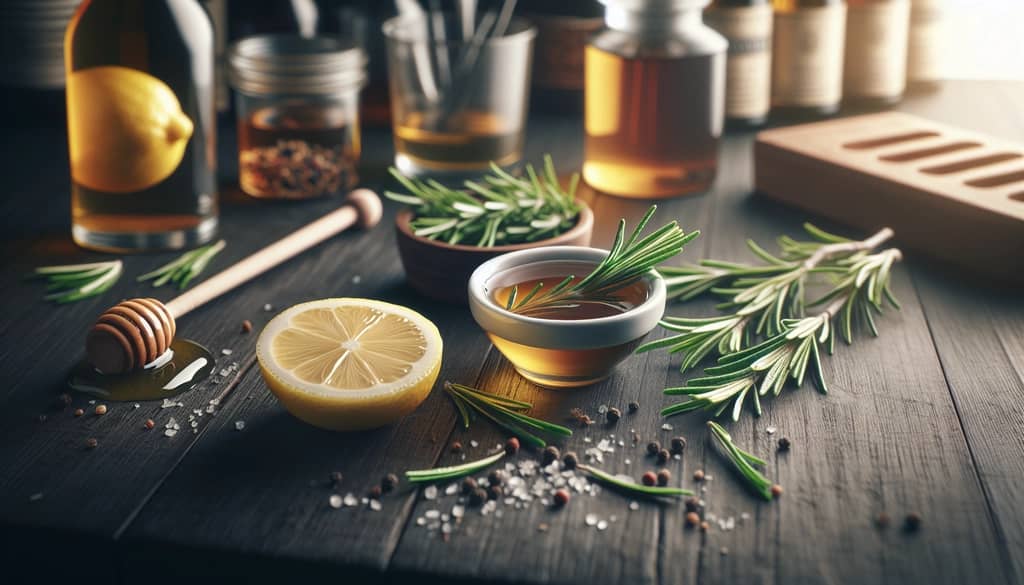Written by: Ethan Parker
Updated on: 6/3/2025
Updated on: 6/3/2025
Favourite
Share
Tips for Balancing Rosemary's Flavor in Cocktails

Rosemary is a bold herb, and a little can take your cocktail from subtle and aromatic to overwhelmingly piney in one sprig too many. Achieving harmony with rosemary in drinks requires care and a few strategic tricks.
How to Use Rosemary Without Overpowering Your Cocktail
- Start small—use just a sprig or 2–5 ml rosemary syrup per drink. Taste and increase gradually if the flavor is too faint.
- Pair rosemary with citrus juices like lemon or grapefruit. The acidity brightens the drink and dampens any woodsy heaviness from the herb.
- Add a touch of sweetness—honey syrup, simple syrup, or agave (start with 15 ml) can balance rosemary's sharp, resinous notes.
- Mix in gentler herbs such as mint or basil for a softer herbal layer that lets rosemary play a supporting role instead of dominating.
- Lightly smack or torch the rosemary before garnishing to release aromatics without steeping too much flavor directly into the cocktail.
- If infusing spirits, strain after a short time—5–10 minutes for gin or vodka is usually enough for a fragrant but not bitter effect.
Balancing Rosemary With Other Flavors
The most successful rosemary cocktails find balance by letting acid, sweetness, and gentle botanicals round off the herb's piney edge. Consider these combinations:
- Lemon juice for brightness—a classic partner for herbs.
- Fresh grapefruit adds sharpness and depth without clashing.
- Add 15 ml honey syrup for a Mediterranean-style balance.

Common Mistakes With Rosemary in Cocktails
- Over-steeping rosemary in spirits or syrups—too long creates bitterness and astringency.
- Adding several sprigs directly to the shaker or glass—intense pine will mask other flavors.
- Forgetting to balance with sweetness or acid, making for a one-dimensional, aggressive drink.
With these tips, rosemary becomes a vibrant accent, not the only thing you taste. Approach it as you would bitters—cautiously and thoughtfully—for a complex, inviting herbal cocktail.